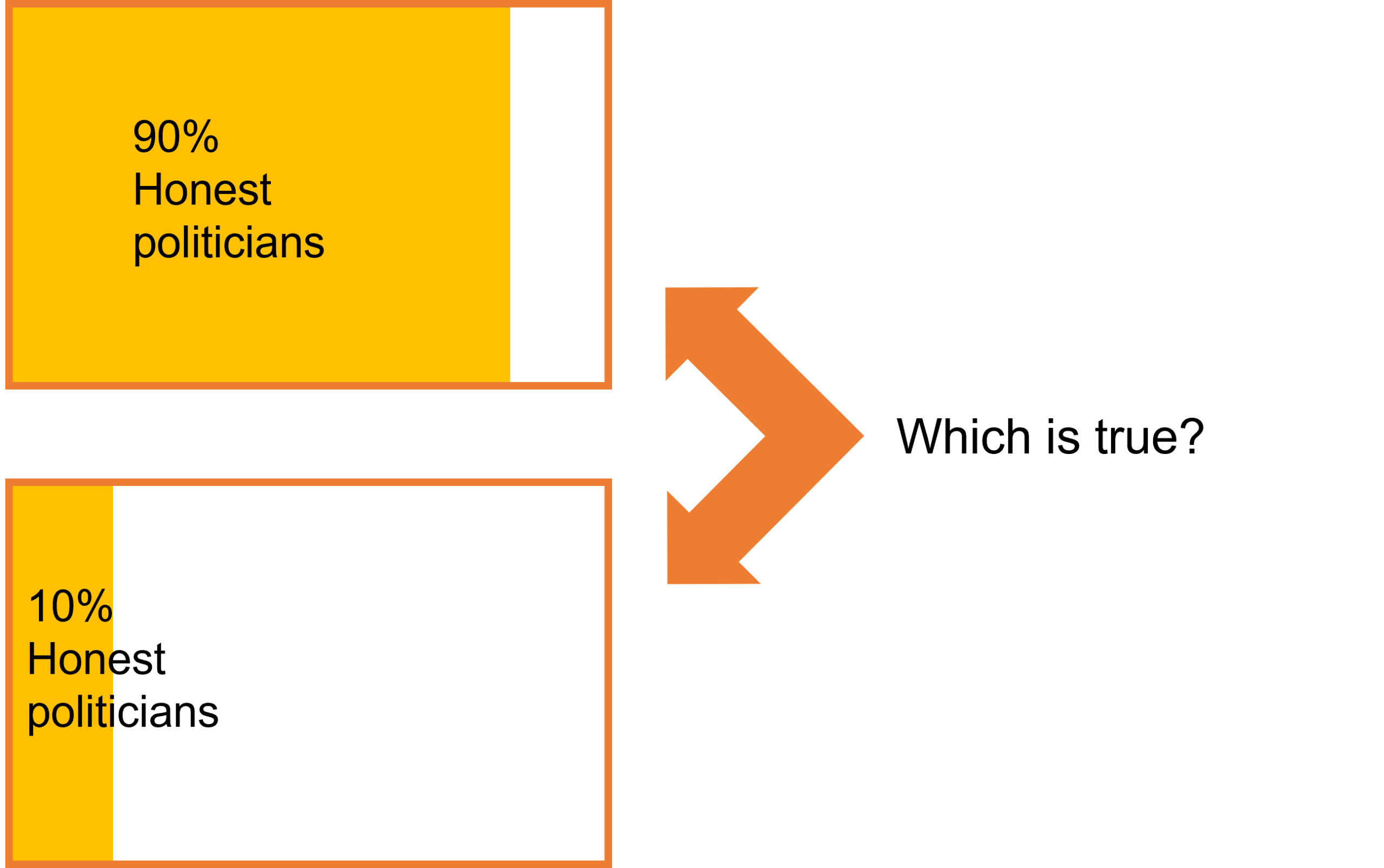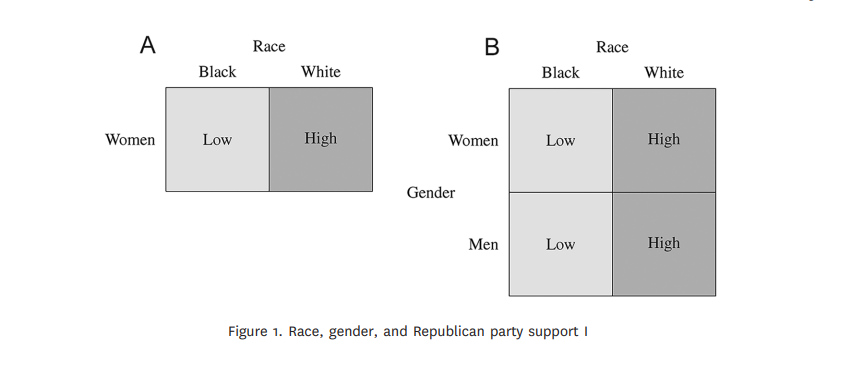Various empirical studies have investigated the causes and consequences of political distrust. They found that politicians’ actions, such as corruption, affect voters’ level of political trust, which in turn influences voting behavior. When determining their actions, politicians should consider this effect on future elections through a change in political trust. As such, political trust, voters’ voting behaviors, and politicians’ actions are interacted with each other. How does this nature of politics influence electoral accountability in representative democracy? The manuscript aims to theoretically address this question by using the game theory. In the game theory, researchers construct a mathematical model, called a “game” and analyze how “players” in the game (i.e., politicians and voters) play the game.
How to model endogenous political trust
The key ingredient of our model is that the extent to which voters should trust the pool of politicians might be uncertain for voters, which we call trust uncertainty. To see this, suppose that the proportion of honest politicians is a. This a is the collective reputation of politicians and can be regarded as political trust. If a is 0.9, 90% of politicians are honest, implying that voters can mostly trust them. Now, suppose that the value of a is uncertain for voters, specifically a is either 0.9 or 0.1, but voters do not know which one is true. Under this assumption, voters update the level of political trust. For example, suppose that voters observe corruption by the incumbent politician, indicating that the incumbent politician is not honest. The incumbent politician is less likely to be honest when a=0.1 than when a=0.9. Hence, corruption by the incumbent politician implies that a is likely to be 0.1. As such, corruption by the incumbent endogenously lowers political trust. We introduce this trust uncertainty into a canonical two-period electoral accountability model.
Findings: Trust uncertainty and accountability
A key finding of this research is the identification of how this trust uncertainty undermines electoral accountability, the electoral mechanism of discipling incumbent politicians. Suppose that the voter observes corruption by the incumbent politician. As mentioned, it reduces the political trust level, making even a challenger in the coming election less attractive to voters. Because of this negative spillover effect on the challenger, corruption does not so reduce the incumbent’s reelection probability. As such, the electoral punishment for corruption is undermined. Consequently, trust uncertainty prevents elections from serving a tool to punish the incumbent politicians’ low performance. Furthermore, under trust uncertainty, whether high accountability is achieved may solely depend on voters’ self-fulfilling expectations. When voters believe that accountability works well, this expectation is realized self-fulfillingly and vice versa. In this sense, the electoral accountability mechanism is fragile and unstable under trust uncertainty.
Implications: Corruption and electoral punishment
Once corruption is revealed, the incumbent should be punished in the next election. However, recent empirical studies have shown that the electoral punishment for corrupt politicians is weak, there is a negative spillover effect of the incumbent’s corruption on the support for a challenger, and the electoral cost of corruption depends on how widespread corruption is. The findings of the manuscript argue that trust uncertainty can explain the weak electoral punishment for corrupt practices. It suggests that when voters become pessimistic about the integrity of all politicians, the effectiveness of electoral accountability mechanisms is reduced.
Implications: Low performance of new democracies
The study also sheds light on the specific challenges faced by new democracies. In these systems, where historical data to form concrete expectations about political trust is limited, voters would face high trust uncertainty. Countries that have experienced democratization often revert to dictatorships after a brief democratic period. One source for this reversion is the low performance of new democracies. While there are several causes of this low performance, such as the weakness of political and legal institutions, another distinction is the extent of trust uncertainty. Due to their limited experience, voters in new democracies do not know the extent to which they should trust democracies. Our results indicate that it induces a break-up in new democracies even if their institutions are well established. In addition, similar countries experience different outcomes depending on citizens’ different expectations in such new democracies.
Summary
In conclusion, the study presents a comprehensive view of how endogenous changes in political trust significantly influence the functioning of democratic systems. By highlighting the complex interplay between politicians’ actions and voter perceptions, it provides valuable insights into the challenges faced by emerging democracies. The findings underscore the need for understanding political trust to ensure effective electoral accountability and the healthy functioning of democratic institutions.
This blog piece is based on the forthcoming Journal of Politics article “Endogenous Political Trust and Electoral Accountability” by Satoshi Kasamatsu and Daiki Kishishita.
The empirical analysis has been successfully replicated by the JOP and the replication files are available in the JOP Dataverse.
About the Authors
Satoshi Kasamatsu is an associate professor at Musashi University, Tokyo, Japan. For more information, visit Satoshi’s website.
Daiki Kishishita is a junior associate professor at Tokyo University of Science, Tokyo, Japan. Both authors study politics in representative democracy by applying the game theory. For more information, visit Daiki’s website.


